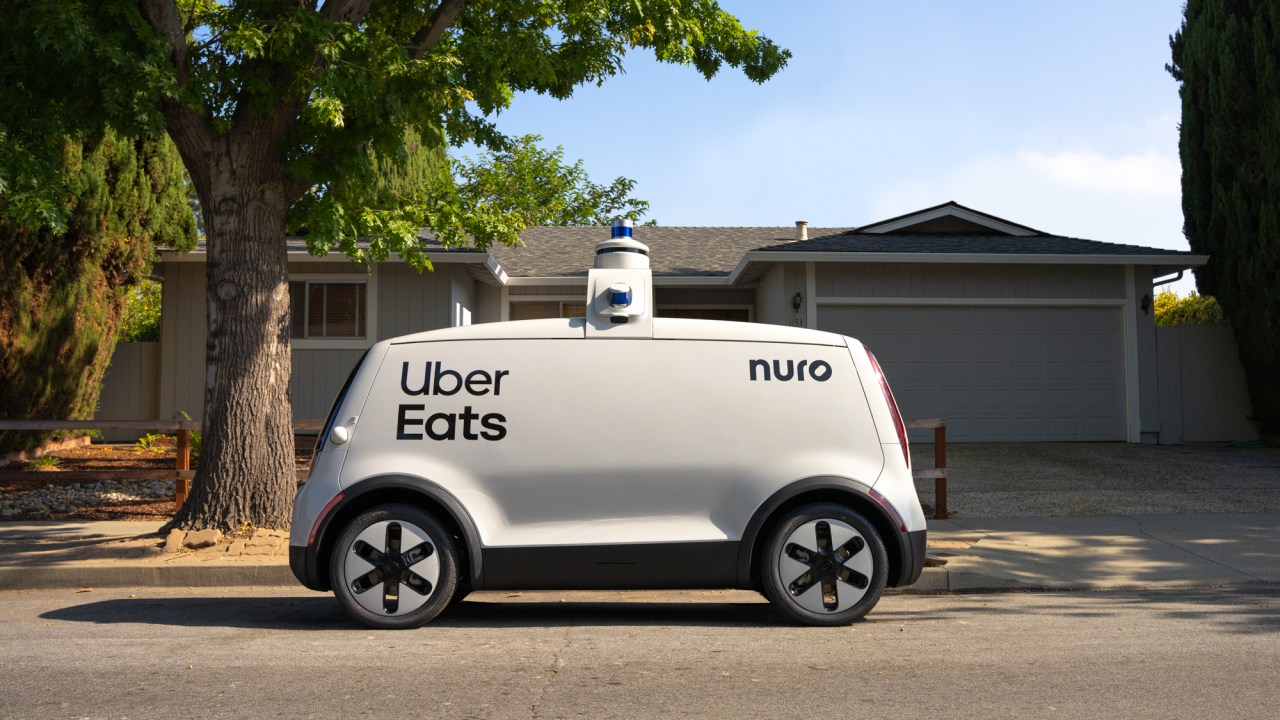Greetings from the tech hub of Cupertino, California, where the air quality is as refreshing as the latest innovations in robotics. As we navigate the ever-evolving field of robotics and machine intelligence, we find ourselves faced with intriguing social dynamics, ethical considerations, and technological breakthroughs that capture our imagination. Let’s delve into the vibrant world of robotics, exploring recent developments that highlight not only their technological prowess but also the shifting perceptions they generate among users.
The New Age of Food Delivery: Robots vs. Humans
In a fascinating turn of events, Uber Eats has partnered with Nuro to introduce autonomous robots for food deliveries. Customers may not notice any price changes, but they can expect a different kind of service. Unlike their human counterparts, Nuro bots don’t accept tips, leading to a fresh perspective on generosity and expectations in service delivery. Imagine ordering a sumptuous burrito, our guilty pleasures seamlessly brought to us by a robotic companion, no tip necessary. But how does this impact consumer sentiment?
- The Novelty Factor: The initial excitement of seeing a robot deliver your food can’t be understated. The first few encounters will feel like a scene straight out of a sci-fi movie.
- Please Don’t Tip the Robot: The social norms surrounding tipping are complex and differ from person to person. For many, not tipping a robot feels more acceptable than overlooking a human worker.
- Emotional Connections: As robots like Nuro become more integrated into everyday life, consumers may grapple with differing emotional responses towards humans and robots. Are we ready to develop that connection with a machine?
Funding Innovations: Realtime Robotics on the Rise
In financial news, Realtime Robotics has secured a remarkable $14.4 million in funding to bolster its software solutions for industrial robots. As we transition from hardware dependencies to streamlined software processes, the challenge of implementing robotics in everyday business environments becomes less daunting. Realtime aims to make autonomous operation accessible to non-experts, undoubtedly a game-changer in the industrial sector.
Peter Howard, the CEO, notes a complete focus on refining software solutions, enabling quicker and safer deployment. This underscores a pivotal shift in robotics, emphasizing ease of use and safety. As the industrial landscape rapidly evolves, the elimination of complex programming barriers promises to enhance productivity and worker safety.
Privacy Concerns: The FTC and the iRobot Acquisition
The buzz around Amazon’s venture to acquire iRobot has generated significant conversation, particularly concerning consumer privacy. With Roomba capable of mapping our homes, the potential implications raise eyebrows among advocates for surveillance and data privacy. As the FTC launches an investigation, we are reminded once again of the delicate balance between technological advancement and ethical accountability.
In a world driven by data, securing user information whilst leveraging valuable insights becomes crucial. This incident serves as a case study for future technology integrations within our daily lives, urging us to critically assess the broader implications of such adaptations.
Military Robotics: Operational Efficiency and Ethical Accountability
Meanwhile, the UK Ministry of Defence (MOD) is exploring the capabilities of Ghost Robotics’ systems. Their focus on tasks that could potentially save human lives highlights the need for robotic assistance in high-stress environments. Robots like the Ghost V60 quadruped could offer enhanced situational awareness, ensuring soldiers can operate effectively while mitigating risks associated with traditional missions.
Yet, as we tread further into the potential applications of military robotics, we must critically examine the ethical implications of deploying machines in combat scenarios. The line between operational efficiency and moral responsibility continues to blur with each technological advancement.
Robotics in Healthcare: Supporting Children’s Mental Wellbeing
A recent study from the University of Cambridge delved into the role of Socially Assistive Robots (SARs) in therapeutic contexts for children. Using Softbank’s Nao robot, researchers discovered its unique ability to detect emotional nuances in children, showcasing a promising step forward in mental health evaluation and support.
This route into robotic therapy opens new frontiers, particularly in enriching the therapeutic landscape for younger populations. As these interactions become more commonplace, further research and ethical considerations will be paramount.
Conclusion: The Future of Robotics and Our Responsibilities
As we forge ahead into an age where robots are a fixture in our lives, the interplay between technology and society becomes increasingly intricate. From food delivery systems to military applications and therapeutic interventions, the implications of robotics stretch far beyond simple automation. We must embrace both the exciting opportunities and serious responsibilities that come with these technologies.
At fxis.ai, we believe that such advancements are crucial for the future of AI, as they enable more comprehensive and effective solutions. Our team is continually exploring new methodologies to push the envelope in artificial intelligence, ensuring that our clients benefit from the latest technological innovations.
For more insights, updates, or to collaborate on AI development projects, stay connected with fxis.ai.
As we keep an eye on the rapid changes unfolding in the robotics sector, it’s clear that our relationship with technology is evolving. The choices we make today will mold the landscape of communication, connection, and ethical responsibility in the future.

